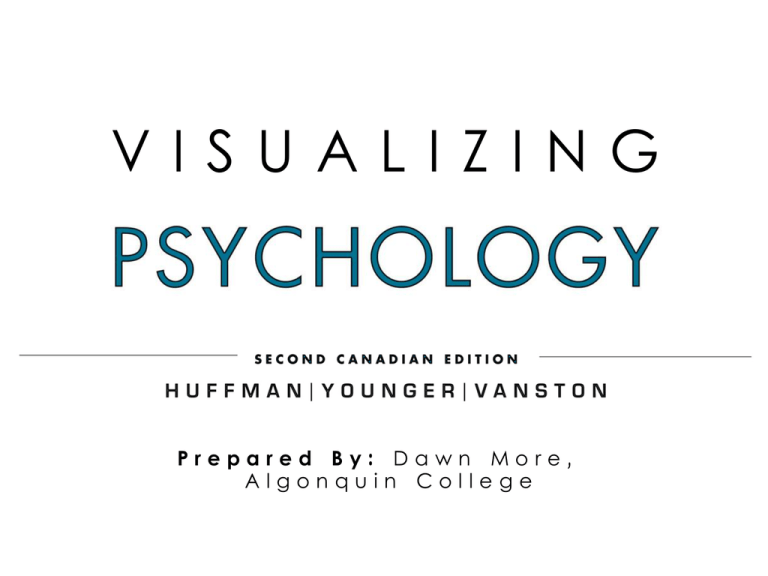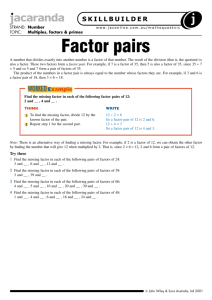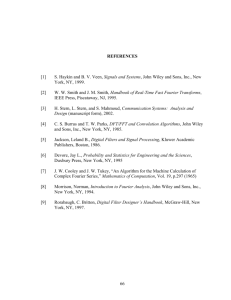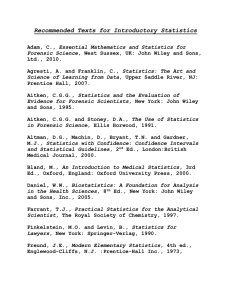
VISUALIZING
Prepared By: Dawn More,
Algonquin College
Chapter 10:
Life Span
Development II
Media Enhanced PowerPoint Presentation
Copyright © 2013 John Wiley & Sons,
Canada Ltd
2
Lecture Overview
• Social, Moral, and Personality Development
• How Sex, Gender, and Culture Affect
Development
• Developmental Challenges throughout
Adulthood
Copyright © 2013 John Wiley & Sons, Canada Ltd
3
S o c i a l ,
M o r a l ,
a n d
P e r s o n a l i t y
D e v e l o p m e n t
LEARNING OBJECTIVES:
1. Describe the three types of attachment
identified by Mary Ainsworth.
2. Explain how attachment influences
social development.
3. Summarize the central characteristics of
Kohlberg’s theory of moral
development.
4. Identify Erikson’s eight stages of
psychosocial development.
Copyright © 2013 John Wiley & Sons, Canada Ltd
4
Social, Moral, and
Personality Development
• Social Development
• Attachment: strong
affectional bond with
special others that
endures over time
– Lorenz’s imprinting
studies suggest
biological argument for
attachment
Copyright © 2013 John Wiley & Sons, Canada Ltd
5
Social, Moral and
Personality Development
• Harlow’s work with monkeys—feeding or
contact comfort?
Copyright © 2013 John Wiley & Sons, Canada Ltd
6
S o c i a l , M o r a l , a n d
P e r s o n a l i t y D e v e l o p m e n t :
T h r e e L e v e l s o f A t t a c h m e n t
• Ainsworth’s strange situation procedure
identified three types of attachment in
children: securely attached, avoidant,
anxious/ambivalent
Copyright © 2013 John Wiley & Sons, Canada Ltd
7
S o c i a l , M o r a l a n d P e r s o n a l i t y
D e v e l o p m e n t : T h r e e L e v e l s o f
A t t a c h m e n t
• Securely attached: child stays close to mother,
shows moderate distress when separated, and is
happy when mother returns.
• Avoidant: child treats mother and stranger the
same and rarely cries when mother leaves.
• Anxious/ambivalent: child is upset when mother
leaves. When mother returns, child seeks
closeness, but also squirms away.
Copyright © 2013 John Wiley & Sons, Canada Ltd
8
Pause and Reflect:
Why Study Psychology?
• Research suggests the
attachment patterns we
develop as infants may
carry over into similar
patterns in our adult
romantic relationships.
Copyright © 2013 John Wiley & Sons, Canada Ltd
9
Social, Moral and
Personality Development
• Kohlberg developed a
model of moral
development (right and
wrong) based on
responses to
moral dilemmas.
Copyright © 2013 John Wiley & Sons, Canada Ltd
10
S o c i a l , M o r a l , a n d P e r s o n a l i t y
D e v e l o p m e n t : K o h l b e r g ’ s T h r e e
L e v e l s a n d S i x S t a g e s
Preconventional Level
Stage 1: punishment-obedience orientation
Stage 2: instrumental-exchange orientation
Conventional Level
Stage 3: good child orientation
Stage 4: law-and-order orientation
Postconventional Level
Stage 5: social-contract orientation
Stage 6: universal ethics orientation
Copyright © 2013 John Wiley & Sons, Canada Ltd
11
K o h l b e r g ’ s
S i x S t a g e s o f
M o r a l
D e v e l o p m e n t
Copyright © 2013 John Wiley & Sons, Canada Ltd
12
S o c i a l , M o r a l , a n d P e r s o n a l i t y
D e v e l o p m e n t : E r i k s o n ’ s E i g h t
P s y c h o s o c i a l S t a g e s : S t a g e s 1 – 4
Copyright © 2013 John Wiley & Sons, Canada Ltd
13
S o c i a l , M o r a l , a n d P e r s o n a l i t y
D e v e l o p m e n t : E r i k s o n ’ s E i g h t
P s y c h o s o c i a l S t a g e s : S t a g e s 5 – 8
Copyright © 2013 John Wiley & Sons, Canada Ltd
14
Pause and Reflect:
Critical Thinking
• Have you successfully resolved the
developmental crisis associated with your
current Eriksonian stage of life? Are there
earlier stages that you may not have
resolved successfully? If so, how has this
affected your personal or social
relationships?
Copyright © 2013 John Wiley & Sons, Canada Ltd
15
Pause and Reflect:
Check & Review
1. George would like to wear two earrings
and a black leather studded jacket, but he
is worried about others’ disapproval. He is
at Kohlberg’s _____ level of moral
development.
2. An infant’s inborn basic disposition is
known as his or her _____.
Copyright © 2013 John Wiley & Sons, Canada Ltd
16
H o w
S e x ,
G e n d e r ,
a n d
C u l t u r e
A f f e c t
D e v e l o p m e n t
LEARNING OBJECTIVES:
1. Identify biological sex differences in
physical development.
2. Describe how gender differences are
related to cognitive, personality, and
social development.
3. Explain how individualistic versus
collectivistic cultures shape personality
development.
Copyright © 2013 John Wiley & Sons, Canada Ltd
17
How
Sex, Gender, and
Culture Affect
Development
• Sex: biological maleness or femaleness
including chromosomal sex; also, sexual
behaviours of intercourse/masturbation
• Gender: psychological and sociocultural
meanings added to biological sex
• Gender Role: societal expectations for
normal and appropriate male and female
behavior
Copyright © 2013 John Wiley & Sons, Canada Ltd
18
How
Sex, Gender, and
Culture Affect
Development
• Physical anatomy:
– Height
– Weight
– Body build
– Reproductive organs
• Functional and structural brain differences:
– Hypothalamus
– Corpus callosum
– Cerebral hemispheres
Copyright © 2013 John Wiley & Sons, Canada Ltd
19
Differences between
the Sexes
Copyright © 2013 John Wiley & Sons, Canada Ltd
20
How
Sex, Gender, and
Culture Affect
Development
• Cognitive abilities
– Women score higher on verbal skills.
– Men score higher on math and visiospatial
skills.
• Aggression
– Men exhibit greater physical aggressiveness.
– Women supposedly higher on relational
aggression, but no clear differences.
Copyright © 2013 John Wiley & Sons, Canada Ltd
21
Gender differences affect
cognitive, social, and
personality development
Copyright © 2013 John Wiley & Sons, Canada Ltd
22
How
Sex, Gender, and
Culture Affect
Development
• Social-learning theory
suggests gender roles
develop as children:
– receive
rewards/punishments
for gender role
behaviors and attitudes
– watch and imitate the
behaviors and attitudes
of others
Copyright © 2013 John Wiley & Sons,
Canada Ltd
23
How
Sex, Gender, and
Culture Affect
Development
• Cognitive-developmental theory suggests
children form gender schemas (mental
images) of correct behaviors for boys versus
girls.
• Androgyny: combining characteristics
typically male (assertive, athletic) with
those considered typically female (yielding,
nurturing); from Greek andro, meaning
“male,” and gyn, meaning “female”
Copyright © 2013 John Wiley & Sons, Canada Ltd
24
How Sex, Gender, and
Culture Affect
Development
• Individualistic Cultures: needs and goals of
the individual are emphasized over the
needs and goals of the group
• Collectivistic Cultures: needs and goals of
the group are emphasized over the needs
and goals of the individual
Copyright © 2013 John Wiley & Sons, Canada Ltd
25
Pause and Reflect:
Critical Thinking
• What are the best and worst things about
the masculine gender role and the feminine
gender role? Would the world be better if
everyone were androgynous? Why or why
not?
Copyright © 2013 John Wiley & Sons, Canada Ltd
26
D e v
C h
t
A d
e l o p m e n t
a l l e n g e s
h r o u g h
u l t h o o d
LEARNING OBJECTIVES:
1.
2.
3.
Describe the factors that ensure realistic
expectations for marriage and long -term
committed relationships.
Explain the factors that affect life satisfaction
during the adult working years and
retirement.
Describe the three basic concepts about
death and dying that people learn to
understand through the course of
development.
Copyright © 2013 John Wiley & Sons, Canada Ltd
27
Developmental
Challenges through
Adulthood: Marriage
• Research shows good marriages:
– Establish “love maps.”
– Share power and provide mutual support.
– Practice conflict management.
– Share similar values, beliefs, interests, etc.
– Create a supportive social environment.
– Maintain a positive emphasis.
Copyright © 2013 John Wiley & Sons, Canada Ltd
28
Challenges through
Adulthood: Are You in the
right Job?
Copyright © 2013 John Wiley & Sons, Canada Ltd
29
Challenges through
Adulthood: Work and
Retirement
• Retirement: should we
follow the activity,
disengagement, or
socio-emotional
selectivity theory?
Copyright © 2013 John Wiley & Sons, Canada Ltd
30
D e v e l o p m e n t a l
t h r o u g h A d u l t
S o c i o e m o t i o n a l
T h e o r
C h a l l e n g e s
h o o d : T h e
S e l e c t i v i t y
y
Copyright © 2013 John Wiley & Sons, Canada Ltd
31
Development Challenges
through Adulthood: Empty
Nest Syndrome
• What about the empty
nest syndrome?
Copyright © 2013 John Wiley & Sons, Canada Ltd
32
Development Challenges
through Adulthood: Grief
and Death
• Cultures interpret and
respond to death
differently
• Different ages also
interpret and respond
to death according to:
– Permanence
– Universality
– Nonfunctionality
Copyright © 2013 John Wiley & Sons, Canada Ltd
33
Development Challenges
through Adulthood: Grief
and Death
• Kübler-Ross developed a five-stage theory
of the psychological processes surrounding
death:
– Denial (“It can’t be true!”)
– Anger (“Why me? It’s not fair!”)
– Bargaining (“I’ll change everything!”)
– Depression (“I’ve lost everything.”)
– Acceptance (“I know my time is near.”)
Copyright © 2013 John Wiley & Sons, Canada Ltd
34
Pause and Reflect:
Check & Review
1. Different ages interpret and respond to
death according to _____, _____, and
_____.
2. Give a brief example of a dying person’s
response during each of Kübler-Ross’ fivestage theory of death.
Copyright © 2013 John Wiley & Sons, Canada Ltd
35
Multimedia
Web Links
Konrad Lorenz biography
Ethology – Imprinting
Moral Development
Inspired by the work of Jean Piaget, developmental
psychologist Lawrence Kohlberg was one of the first
researchers to study the moral development of the
individual.
Moral Development and Moral Education: An
Overview
Moral education is becoming an increasingly popular
topic in the fields of psychology and education.
The Morality Test
The following survey assesses your moral attitudes,
particularly as they relate to your religious and
cultural background.
Moral Maze
Model Behaviour
Morals – Social Responsibility Questionnaire
This questionnaire is designed to test your attitudes
to moral behaviour and to find out how socially
responsible you are.
Perspective on Erik Erikson’s Eight Stages of Human
Development
How we mature – or don’t
Feeling Connected
Use this quiz to help you determine how connected
you're feeling with your partner in your romantic
relationship.
Do I have a Love, Lust or Loser Relationship? Quiz
Answer the questions below honestly about the
person you have feelings for and we'll score the quiz
and let you know the likelihood of love.
Copyright © 2013 John Wiley & Sons, Canada Ltd
36
Multimedia
Web Links
Retirement
If you're like most Canadians, you want to retire early
and you're confident you'll have the means to do it.
But chances are you won't be packing it in as early as
you planned to – and you won't be living in the lap of
luxury.
Doctor Decries Euthanasia Bill
The legalization of euthanasia and assisted suicide in
Canada could reduce the level of care available to
those with terminal illnesses, an Ottawa doctor
warns.
Self-Help Pages on Psych Web
Death & Dying
Copyright © 2013 John Wiley & Sons, Canada Ltd
37
Multimedia
Animations
Kohlberg Stages of Moral Reasoning
If you arrived at a red light when no one was around
to see, would it be ok to run the light?
Copyright © 2013 John Wiley & Sons, Canada Ltd
38
Copyright
Copyright © 2013 John Wiley & Sons Canada, Ltd.
All rights reserved. Reproduction or translation of this
work beyond that permitted by Access Copyright (The
Canadian Copyright Licensing Agency) is unlawful.
Requests for further information should be addressed
to the Permissions Department, John Wiley & Sons
Canada, Ltd. The purchaser may make back-up
copies for his or her own use only and not for
distribution or resale. The author and the publisher
assume no responsibility for errors, omissions, or
damages caused by the use of these programs or
from the use of the information contained herein.
Copyright © 2013 John Wiley & Sons, Canada Ltd
39




